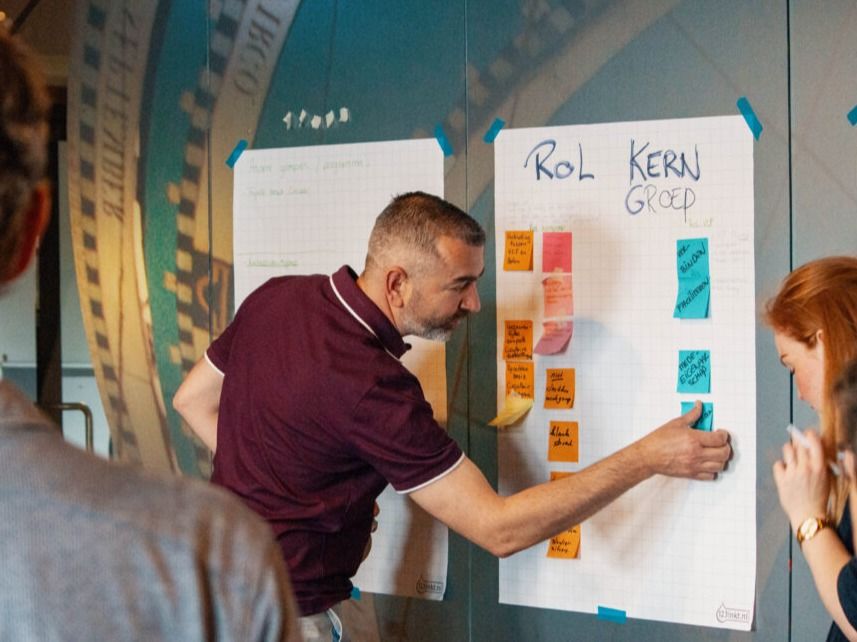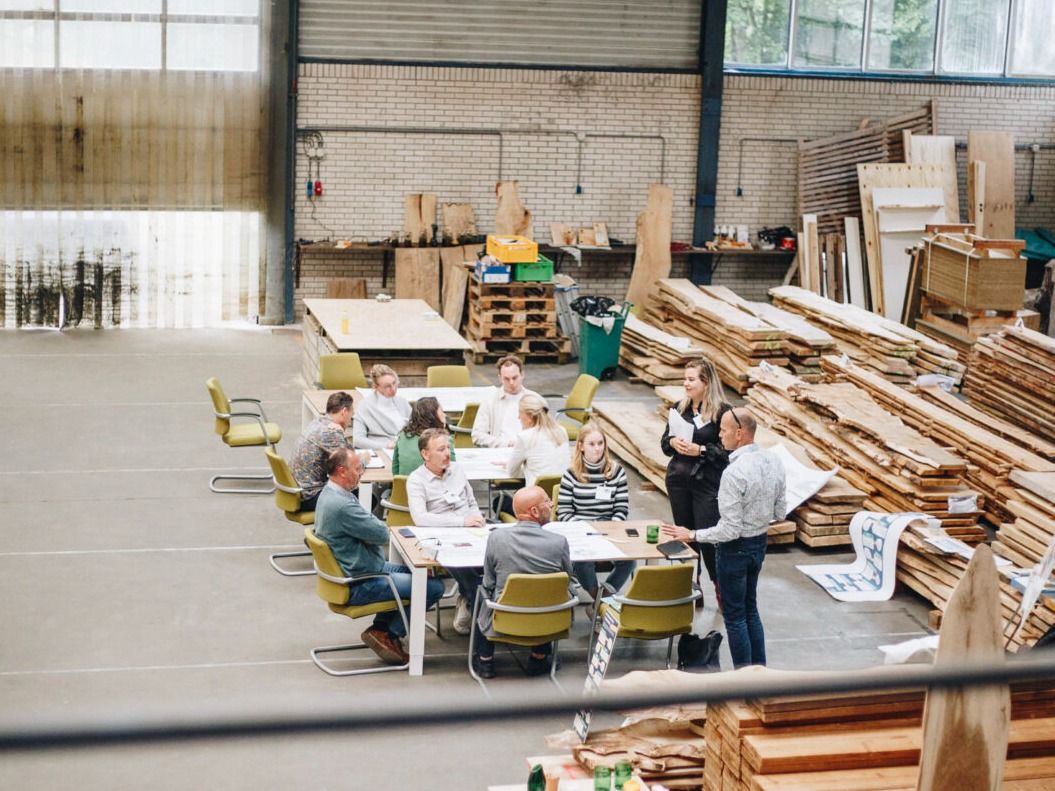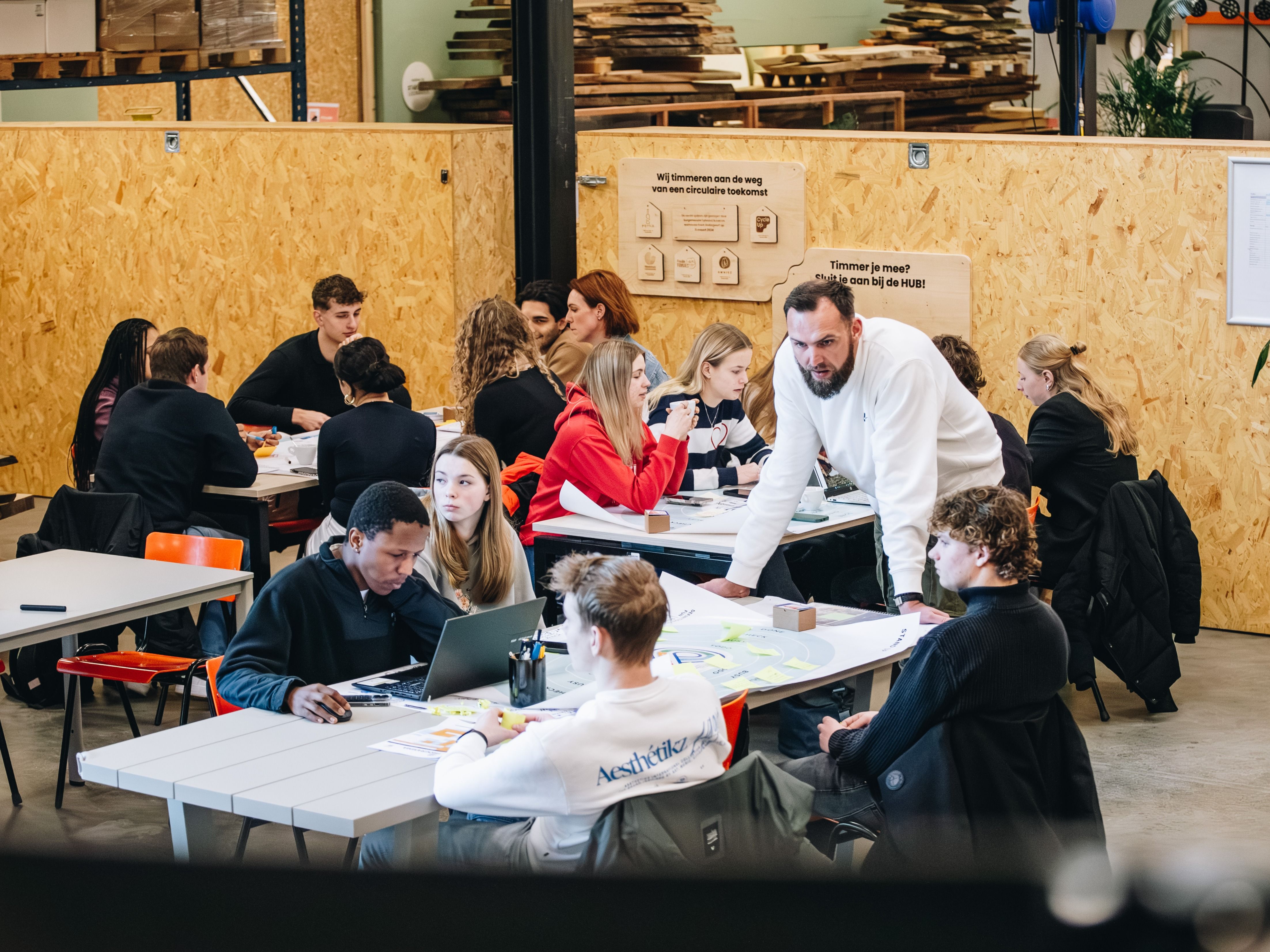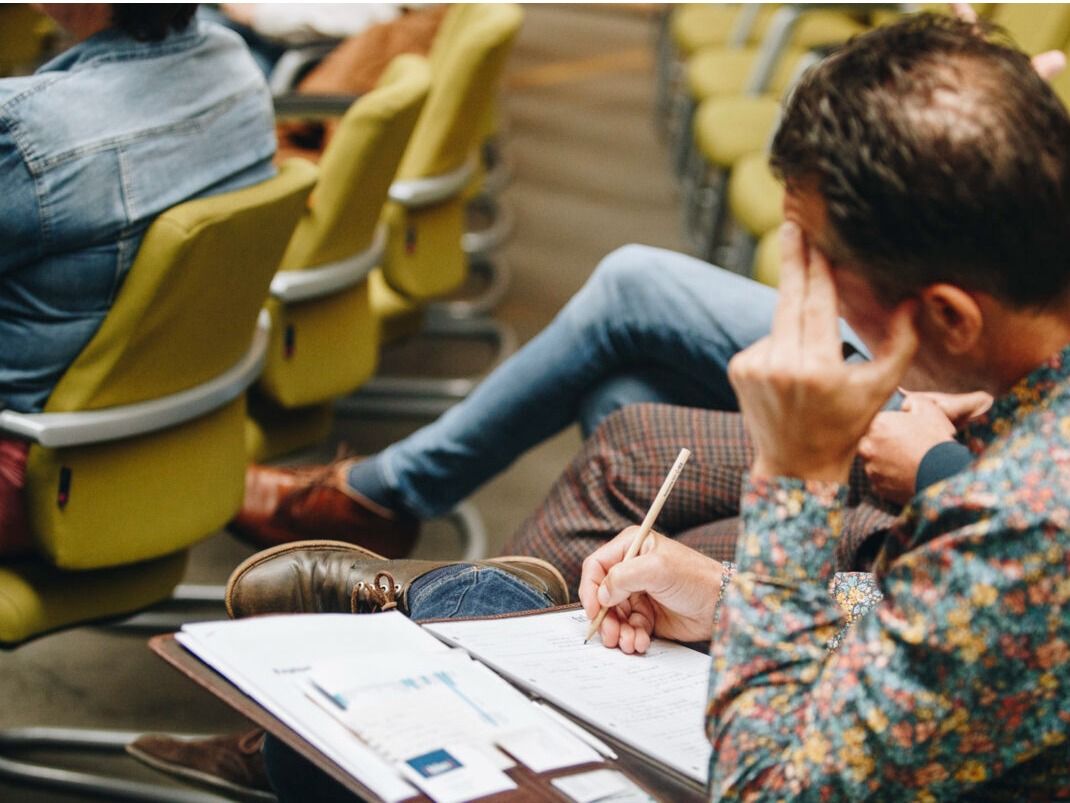Tipping points
As mentioned in Friesland in Action, Friesland has determined certain ‘tipping points’ for the circular transition—crucial and decisive areas that largely determine the success of the region’s circular transition. These tipping points are linked to numerous programs and projects driven by Circulair Friesland and its members. The Frisian tipping points include:
Circular Procurement¶
Circular procurement enables the purchasing party to ensure that, at the end of their service life or useful life, products or materials will be re-used effectively in a new cycle. It is crucial that products and materials retain their value. It is important to avoid value destruction due to “downcycling” (e.g. processing A4 paper into toilet paper) wherever possible. As a procurer, you can have immense impact on the transition by using circular criteria for the required solution.
Frisian governments spend approximately €1.5 billion annually on physical goods, making them a key driver in generating demand for circular products. Through circular procurement, they help create future-proof business models and employment opportunities, contributing to a more circular and sustainable Friesland. Recognizing this potential, Frisian governments have set clear ambitions: 25% in 2025, 75% in 2030 and aiming for 100% circular procurement by 2035.
To achieve these goals, Frisian governments have developed an intensive collaboration. Circular Friesland supports them in advancing this transition through initiatives such as the regional programme Circular Commissioning & Procurement by Frisian Governments and the learning community Circular Business Operations. These combined efforts have led, among other outcomes, to the construction of the provincial bridge control centre Swettehûs, which was built using approximately 50% reused materials.
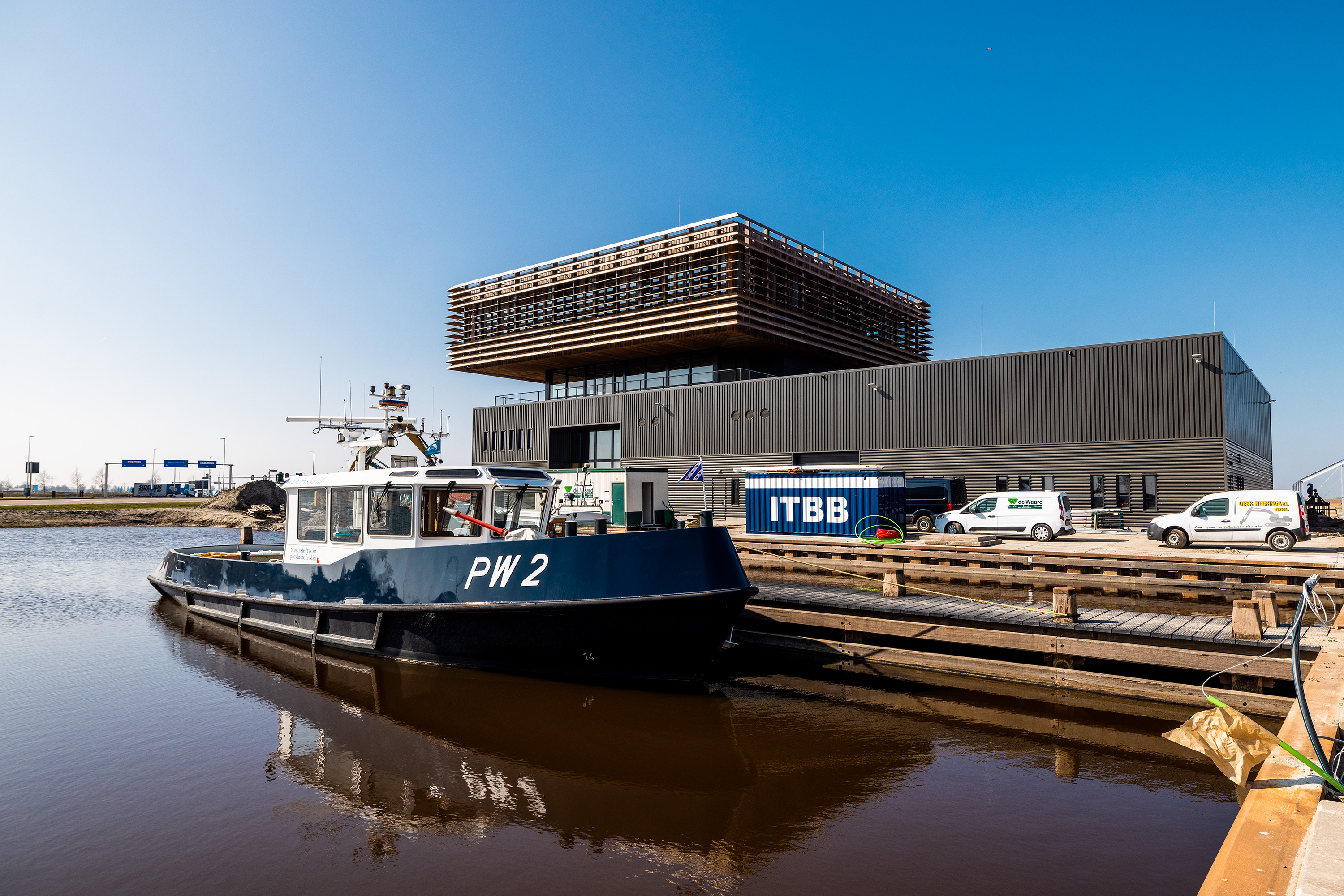
A concrete example of how circular demand is being stimulated is the ‘Stimulating Demand Approach’ within the Friesland Builds Circular programme. This approach aligns with the national goals of the National Approach Biobased Building (NABB), which aims to stimulate the use—and procurement—of biobased building materials. By 2030, at least 30% of all new housing projects in the Netherlands will include a minimum of 30% biobased materials by mass.
Circular Entrepreneurship¶
The Circular Friesland Association is committed to developing and scaling up circular entrepreneurship across the region. There are approximately 20.000 SME’s situated in Friesland. Every organisation in Friesland has the potential to operate circularly—but businesses require help in translating circular economy to what it means for their company, how to take the first steps and scale up. That’s why Circular Friesland, together with partners from across the Northern Netherlands, develops practical knowledge, tools, and networks to help organisations get started and make real progress. SME’s are supported through activities such as CIRCO tracks, which help identify circular opportunities in existing processes, or through collaborative initiatives like the ‘Ambition Table for Innovation and Financing’.
Circular Friesland sees circular entrepreneurship as essential for building a resilient and future-proof regional economy. It involves designing business models that close resource loops, reduce waste, and retain value—through strategies like reuse, repair, sharing, product-as-a-service, and reverse logistics. By embracing circular practices, companies not only contribute to solving major global challenges such as resource scarcity and waste, but also benefit from lower costs, new revenue streams, regulatory preparedness, and stronger customer relationships.
Circular education¶
Education plays a vital role in Friesland’s circular transition—by preparing students as future changemakers, retraining today’s workforce, and co-developing innovations. To support this, SPARK the Movement was initiated by local entrepreneurs and the Province of Fryslân. It has since evolved into the shared program for sustainability and circularity in Frisian education, spanning all levels from primary school to university.
SPARK strengthens the region’s transition by organising multi-level, multi-disciplinary, and multi-stakeholder learning processes, developing transformative learning environments, and stimulating the knowledge, skills, and expertise of educators for the circular transition. By valuing existing initiatives, facilitating collaboration with regional businesses and governments, and embedding sustainable practices within schools, SPARK ensures that education remains a driving force in building a circular future. This unique, region-wide approach has earned international recognition from the United Nations University.
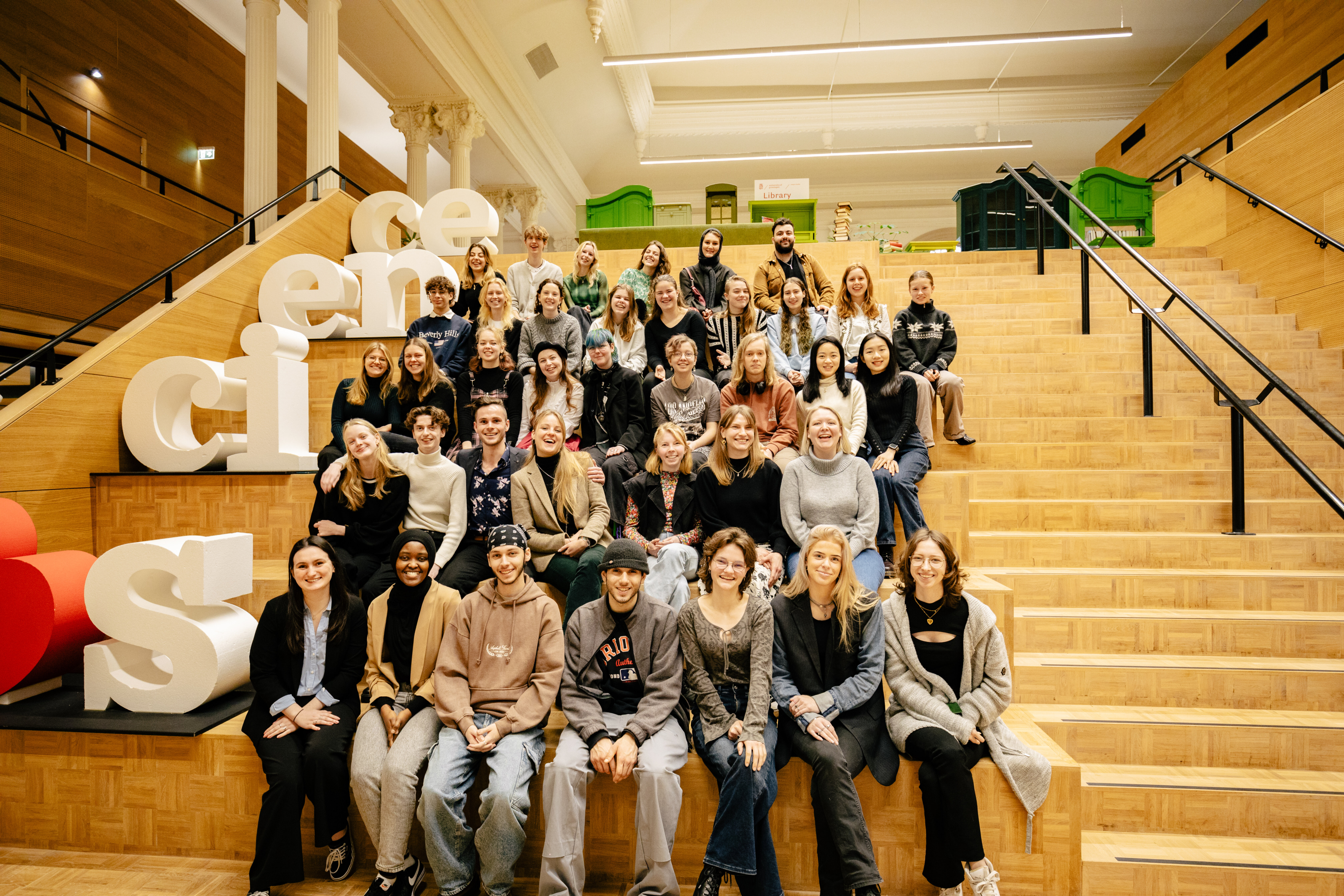
Legislation and regulation¶
Laws and regulations often still favour the linear economy and its business models, hindering the circular transition in many areas. At the same time, the Netherlands has set the ambition to be 50% circular by 2030 and 100% circular by 2050. To ensure that legislation supports rather than obstructs circular progress, Circular Friesland—together with the Province of Fryslân and the Northern Netherlands collaboration network—initiated the Ambition Table on Laws and Regulations.
This initiative operates in two key ways: by providing organisations with insights into existing and emerging circular policies, and by leveraging its network and position to present concrete proposals and recommendations to national and European policymakers.
Thanks to the practical experiences of its members, Circular Friesland holds a unique knowledge position—enabling the association to offer constructive, practice-based input into both Dutch and European policy development.
